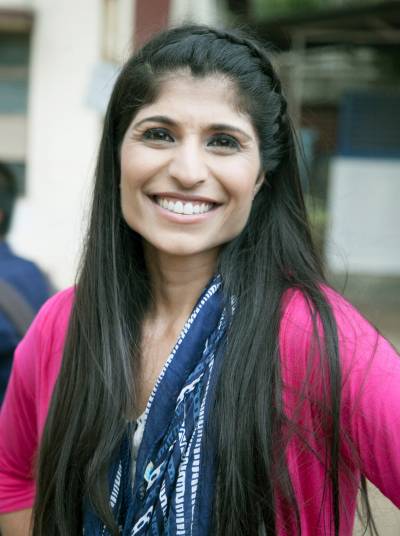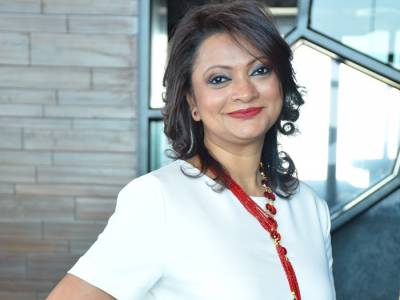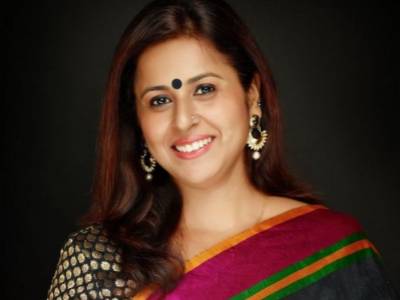The W-Suite | Pay parity is a serious issue: Shikha Uberoi
With a rapidly evolving business and economic landscape there is a dire requirement of fresh thinking, new skill sets, greater flexibility & adaptability, more collaboration as well as the ability to think on one’s feet.
Gone are the days when the thinking was more on the lines of ‘get a man to do this job’. Diversity in the workforce has become a necessity today, and more so in the leadership positions. It can’t be denied that women bring a high level of creativity and empathy while solving problems and handling crises. Women leaders bring to the table a different level of dexterity.
AdGully’s ‘The W-Suite’ series features interactions with influential women leaders in India, who share some deep insights on what being a woman leader means in India’s business landscape, the mantras to succeed, achieving work-life balance, pay parity and much more.
From the tennis courts to being a social entrepreneur, Shikha Uberoi has made a smooth transition. Uberoi is the co-founder of India’s first social video sharing platform, Indi.com, which is backed by actor Anil Kapoor. She launched her media and lifestyle company, SDU Seva, Inc. in 2013 and is currently creating and producing international social issue television shows.
Uberoi is a former top 100 WTA Tour tennis player, Asian Games Silver Medallist (Doha ’06), India No. 1, Fed Cup India leader (#1 and 2 in India), Zee Astitva Athlete of the Year 2007, and one half of the dynamic Uberoi Sisters. She was the first Indian woman to qualify and reach the second round of the US Open in 2004 and was the top 10 fastest server in the world.
Today, she is a social entrepreneur in the stereotypical male-dominated tech industry, using the mediums of sport/ fitness and TV to incite change.
What defines a woman leader in today’s ecosystem?
Leadership is a broad term and extends to various aspects of a woman’s life. Women hold leadership responsibilities in nearly every facet of their lives, some are just not aware that they are leaders. A woman leader is confident, she speaks her mind and expresses her thoughts with precision, she leverages the resources in her life to maximise her success, she is not afraid to ask for help, she takes major risks, and above all, she defies convention on a daily basis.
Why do you think a smaller percentage of women than men reach the top of their professions?
Less women reach the top because less women are out there trying! When less women are out there, it perpetuates constructs of women being less and, therefore, not succeeding in various fields. This also makes enablers like investors less accustomed to supporting women. So, if the overall pool of women playing the field doesn’t increase, we won’t see women reaching the top.
Do you think women leaders are still scrutinised as much for style as for substance?
I have not come across such scrutiny on a personal level. I imagine it exists, as women face tremendous obstacles while simply trying to express themselves, let alone trying to pursue leadership opportunities.
Do you think the leadership effectiveness of women is higher than men? Why?
I don’t have data that proves or disproves this. However, I do have first-hand experience of women making excellent leaders of both men and women.
Women leaders in the 80’s and 90’s and women leaders today - what are the key differences? And what are the things that haven’t changed much?
Today, compared to the 80s and 90s, it is more in the realm of possibility in the collective conscious of people for a woman to be a leader. This is thanks to the persistent efforts of activists, role models, and even policy change. Women are getting married later as compared to the 80s, so this allows more time for women to pursue their career independently. Moreover, they have access to technology to bear children at a later age if they wish to start a family post or during career goals.
That being said, we still don’t see enough women taking the plunge and big risks required to start up or even take the lead at corporations. I believe this is partly because cultures and particularly patriarchal cultures are so deeply rooted in male preference and expect females to be the ones to adjust and sacrifice. This cultural practice is lethal to our economy and fatal to India’s chances of grabbing the “world leader” title.
How do you maintain a balance between career goals and family responsibilities? How frequently do you have to sacrifice one for the other?
Because I do not have children yet, I believe it is easier for me to prioritise work. I continuously sacrifice my family and my role as a wife for work. I believe I can afford to do this because my husband is my co-founder and understands completely.
Do you think pay parity exists in our corporates today across levels? What about pay parity at the leadership levels?
I believe pay parity is a serious issue. I believe in a few instances women are getting equal pay. However, I have a haunch it is not happening as much as it is supposed to.
What would be your advice to women aiming for the C-suite?
I would say get ready to fail and get back up multiple times. This resilience is what will make you the best C level executive. I would also say, ask for help whenever you need it and then pay it forward along your way and especially when you do get to the top.
What, according to you, are the 3 important lessons new women leaders need to learn?
- It’s a marathon with many sprints in between. So be prepared for the long haul, but carry your sprinting shoes, always.
- Be prepared for the 100 to 1 ratio, that’s 100 rejections for every win. Learn that “no” means not yet.
- Set up your personal team first. This team should consist of the people you trust and will always have your back. You will need your team of emotional support more than you think.
- SPEAK UP! Project your voice, stand straight and fake it even if you have no idea what you are doing. Your posture and voice is critical to how you represent your product.





















Share
Facebook
YouTube
Tweet
Twitter
LinkedIn